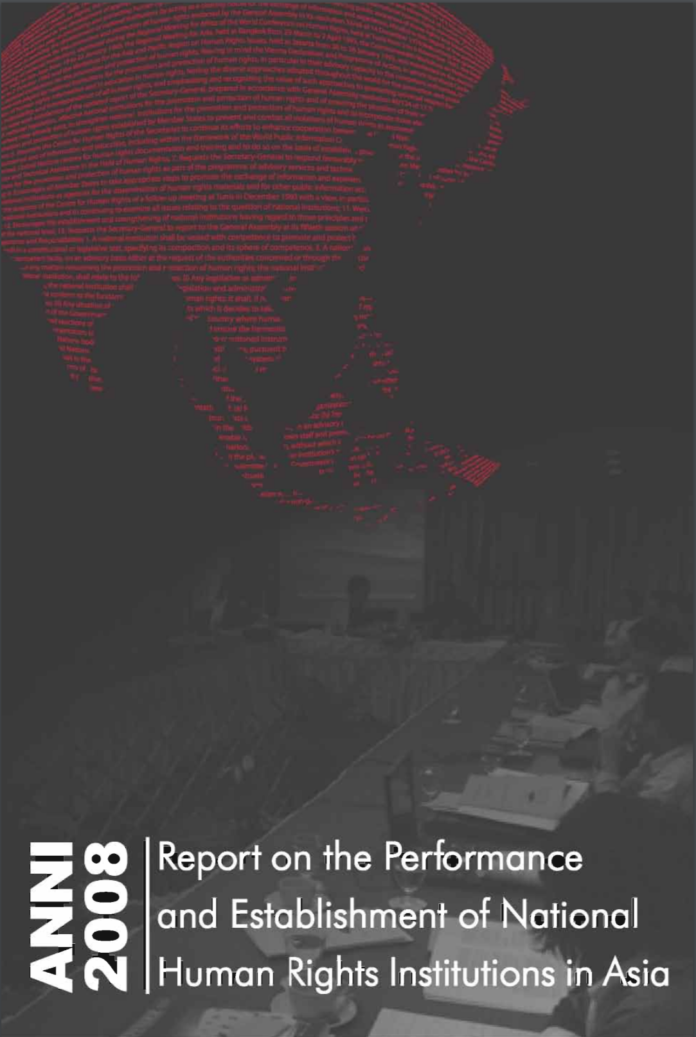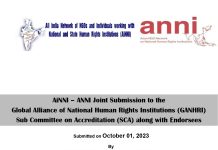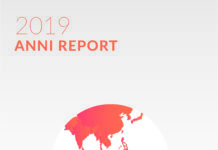2008 Report on the Performance and Establishment of
National Human Rights Institutions in Asia
The State of National Human Rights
Institutions in Asia: A Regional Analysis
Human Rights Defenders Programme, FORUM-ASIA
In 2007, the members of the Asian NGOs Network for National Human Rights
Institutions (ANNI) undertook a project to assess the performance and
effectiveness of National Human Rights Institutions (NHRIs) in Asia. The outputs
of this project are reports written by members and partners of the ANNI who
have practical expertise in engaging with their respective NHRIs. Reports were
also written by ANNI members and partners from countries that are still in the
process of creating NHRIs. All of these reports have been compiled by the Asian
Forum for Human Rights and Development (FORUM-ASIA) as the coordinator of
the ANNI.
This regional analysis of all the reports for 2007 is meant to help members and
partners of the ANNI to build a regional perspective of the situation of NHRIs in
Asia. From the reports, main trends and issues were identified, all of which are
common to many NHRIs in the region.
There are three main issues that are prevalent among national human rights
institutions (NHRIs) in Asia. The first issue is with respect to the independence of
these NHRIs from government interference and control. There are several aspects
to the issue of independence, but a large number of the reports point to the
NHRIs lack of structural and fiscal autonomy and the arbitrary and non-
transparent appointment process of members of the commission as major areas
of concern.
The second prevalent issue common among most of the NHRIs in the region is
their ineffectiveness. Again, many reasons were given for this, including the lack
of resources, political will, advocacy strategies, and a focus on the promotion
aspect of their mandate, thereby almost forgetting the protection side of their
work.
Finally, the third most common issue is the lack of a good and constructive
relationships between NHRIs and non-governmental organisations (NGOs) at the
national level. It appears however, that this issue is closely related to the first
two. The lack of independence and ineffectiveness of NHRIs make NGOs hesitant to engage with them. Moreover, because of the NHRIs lack of structural and
fiscal autonomy from their governments, the NHRIs often identify themselves as
another government institution. This type of attitude leads the NHRIs to take on
the defensive stance of the governments when it comes to criticisms received
from NGOs.












